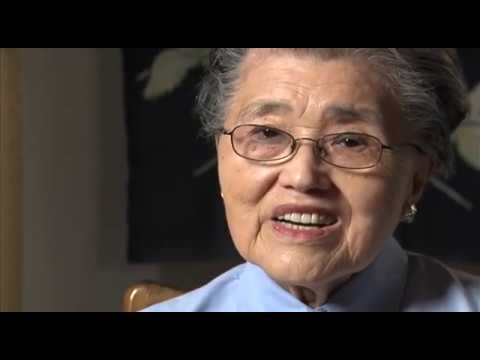Moneybelts – Nobi Omoto (OH0053)
Transcript
When we were ordered to leave, I think it was my father and my sister or my brother went into town, because we needed suitcases and a few necessities. And so they brought home suitcases, you know, those old–fashioned flimsy ones. They couldn’t afford the best. So, and then I think, I think I remember clearly my father thought that Niseis and Isseis would be separated. So he gave a… he went and bought tin plate, tin cup, and a silverware for each of us to take in case. And then Mom made a money belt and wrapped up so we could tying around our tummy and gave each of us cash, so we’ll have something. So, that was very scary, too.
We were told we could only carry, take what we could carry, and that wasn’t much because I had three younger sisters. But I had a little suitcase which I really stuffed it. And then I had a little shopping bag, stuffed, and I had couple school books. And then I put layers and layers of clothes on because you can’t, you can’t carry all that. So I remember that, carrying layers of clothes and my little belongings. But it was a… to leave our new farmhouse, and we didn’t know where we were going, it was very… another scary time. I think the whole Pearl Harbor to evacuation all along was very, a stressful time for many families, including me, yeah.



